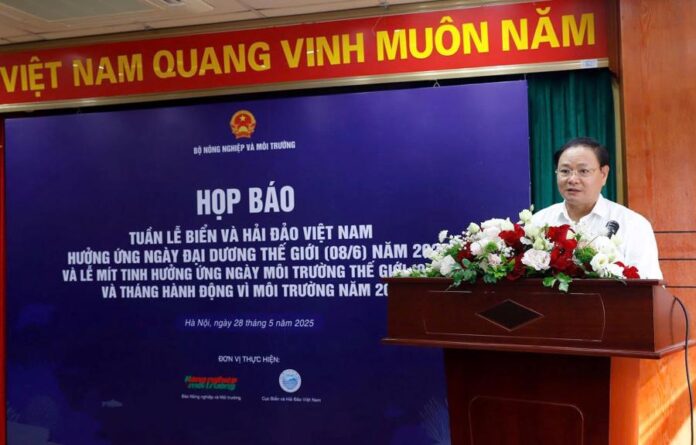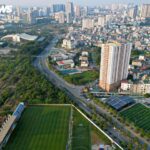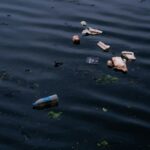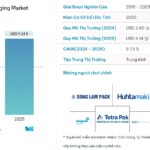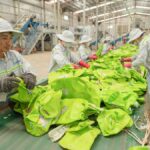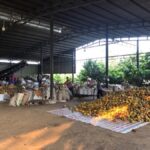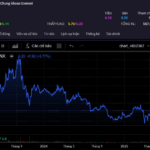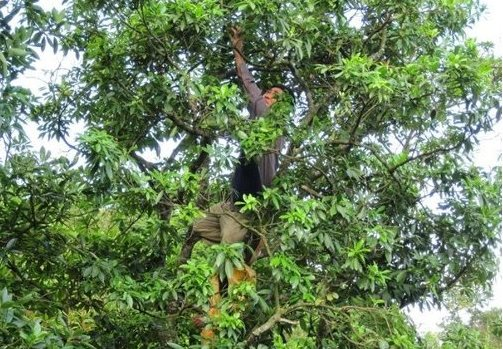The Environmental Protection Law introduces a new approach to waste management, shifting from a flat rate to a volume-based fee for waste collection and treatment. Starting in 2025, households will no longer pay a standard fee but will be charged based on the amount of waste they generate, encouraging a more sustainable mindset.
However, since the enactment of the Environmental Protection Law 2020 No. 72/2020/QH14, concerns have been raised regarding its implementation. Specifically, there are worries about how waste collectors will determine the exact quantity of waste generated by each household without carrying scales during their collection rounds.
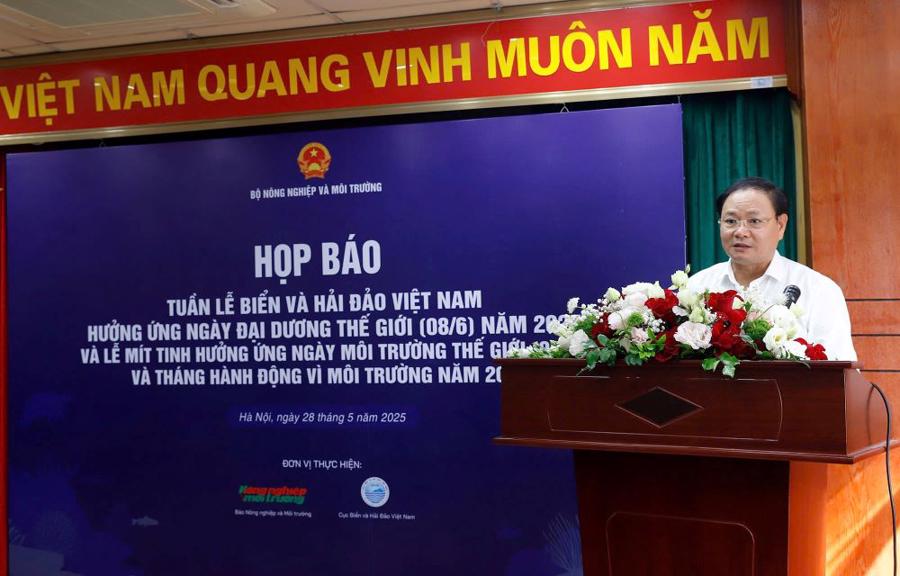
Some worry that those with low awareness might collude with waste collectors to underreport their waste quantities, leading to corruption. There are also concerns that people might avoid paying the fees by dumping their trash in their neighbors’ bins or in public spaces like parks, rivers, and canals, further exacerbating environmental pollution.
PAY-AS-YOU-THROW FEES THROUGH STANDARDIZED BAG PURCHASES
At a press conference introducing Vietnam’s Sea and Island Week and Environment Action Month in 2025, held on May 28, 2025, Mr. Ho Kien Trung, Deputy Director of the Environment Department (Ministry of Agriculture and Environment), clarified that up until now, households have only been responsible for a portion of the waste collection and treatment costs. The state has been bearing the majority of these expenses. However, these subsidized costs ultimately come from taxpayer money, meaning that those who produce less waste are subsidizing the costs for those who generate more, which is unfair. Hence, the new volume-based fee structure aims to ensure fairness, rationality, and civility.
According to Mr. Trung, the Environmental Protection Law stipulates that by 2025, households will be charged for waste collection based on volume or weight, rather than a flat rate. However, the implementation progress has been slow, and as of now, only a few localities like Quang Nam have adopted this approach.
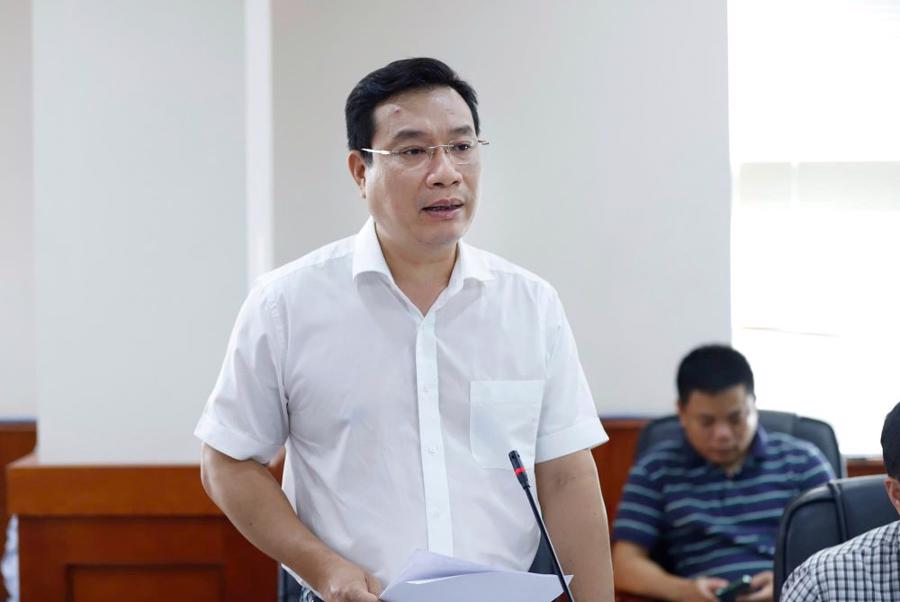
“The pilot program of ‘weighing garbage to calculate fees’ is just the first step in establishing a mechanism for charging fees based on waste quantity. I suggest that the media accurately convey the true nature of this policy: it’s not about people having to weigh their garbage, but rather purchasing standardized bags, thereby determining the collection cost corresponding to the actual amount of waste generated. This is a crucial step in changing behaviors, promoting waste sorting, and reducing waste generation at the source.”
Elaborating further, the representative of the Environment Department explained that the method of calculating fees based on waste packaging has been successfully implemented in developed countries. There are two approaches: either people purchase bags of different colors and sizes (for example, 5 kg – red, 10 kg – green, 15 kg – yellow) and pay for collection at the time of purchase, or they use the correct type of bag, and the waste collector charges based on the number of bags.
Currently, some localities are experimenting with a “cash for trash” model, which is essentially a reversal of the traditional waste disposal process. Commenting on this model, Mr. Ho Kien Trung, Deputy Director of the Environment Department, stated that the “cash for trash” concept is not new and has existed in the form of scrap and junk buying.
According to the Ministry of Agriculture and Environment, the volume of solid waste increases by about 10% annually, and this trend is expected to continue. A Vietnamese study revealed that 40% of household waste consists of food, organic matter, and recyclable materials. Solid waste is not necessarily waste but can be considered a resource. To utilize this resource effectively, two critical factors are waste sorting at the source and non-landfill treatment technologies. In other words, synchronization is required from the waste collection stage at the household level to the final treatment stage.
Specifically, solid waste from households and individuals is classified into three types: waste with reuse and recycling potential, food waste, and other solid waste. Households and individuals generating solid waste must sort their waste according to regulations and are responsible for paying a portion of the cost of collecting, transporting, and treating solid waste based on the volume generated. The remaining cost is subsidized by the government according to its regulations. Households that correctly sort recyclable waste are exempt from paying the fee for collecting, transporting, and treating this type of waste.
EMPHASIZING BUSINESSES’ RESPONSIBILITY FOR RECYCLING
Mr. Trung highlighted that globally, 430 million tons of plastic waste are produced annually, with two-thirds of it being single-use plastic (according to the United Nations). In Vietnam, 1.8 million tons of plastic waste are generated, most of which is landfilled or incinerated, resulting in a loss of valuable resources.
The government has been proactive in implementing solutions to reduce plastic waste. In 2020, the Prime Minister issued Directive No. 33/CT-TTg on enhancing the management, reuse, recycling, treatment, and reduction of plastic waste. This directive focused on requesting agencies and organizations to refrain from using single-use plastic items.
In 2021, the government issued Decision No. 175/QD-TTg on strengthening communication and awareness about plastic waste prevention for the period 2021-2025. This decision specifically targeted large commercial centers and tourist destinations, aiming to eliminate single-use plastic items and reduce plastic imports.
In recent years, authorities have launched similar programs to promote recycling, such as extending producer responsibility (EPR), where manufacturers of packaging are responsible for collecting and recycling the packaging they introduce to the market.
“From 2026, Vietnam will no longer produce or import small, hard-to-decompose bio-plastic bags measuring less than 50cm x 50cm. In the 2025-2026 period, the Ministry of Agriculture and Environment will implement a series of solutions, emphasizing the recycling responsibilities of individuals and businesses. Additionally, the recycling industry will play a crucial role in Vietnam’s recycling sector,” emphasized Mr. Trung.
Mr. Trung acknowledged that infrastructure and capacity for waste sorting are still lacking, and food waste management remains a challenge in many localities. To address this, the Ministry of Agriculture and Environment has provided guidelines on waste collection rates, urged localities to take action, and supported the development of high-quality recycling businesses in Hai Phong, Quang Nam, and Quang Ninh.
The Never-Ending Road: A 1.4km Journey Through Four Years of Construction and Counting
Construction began in 2020 and was expected to be completed within 450 days, but the Vu Quynh road extension in Hanoi remains unfinished, with construction materials and debris littering the area, causing pollution and an eyesore for residents.
The Plastic Box and the Waste Oil: An Unbearable Burden for Nature.
For far too long, used engine oil has posed a significant threat to both the environment and human health. The conventional practice of packaging oil in small bottles, ranging from a few milliliters to a liter, for lubrication and maintenance of vehicles like motorcycles and cars has led to a pressing environmental challenge. It’s time to address this nagging issue and find sustainable solutions.
The Green Revolution: Leading the Way in Eco-Consciousness
With extended producer responsibility, businesses are now accountable for the collection and recycling of waste generated from their products. This shift has led to a surge in recycling demands, empowering recyclers with additional resources and presenting a unique opportunity to revolutionize waste management.
The Magic of Cocoa Pod Husk: Unlocking Circular Economy Solutions in Cocoa
The circular economic model of production is now regarded as a sustainable solution, emphasizing waste reduction and resource optimization. This approach is becoming increasingly vital in the agriculture and agro-processing industries, as stakeholders recognize the importance of minimizing environmental impact while maximizing efficiency.


























